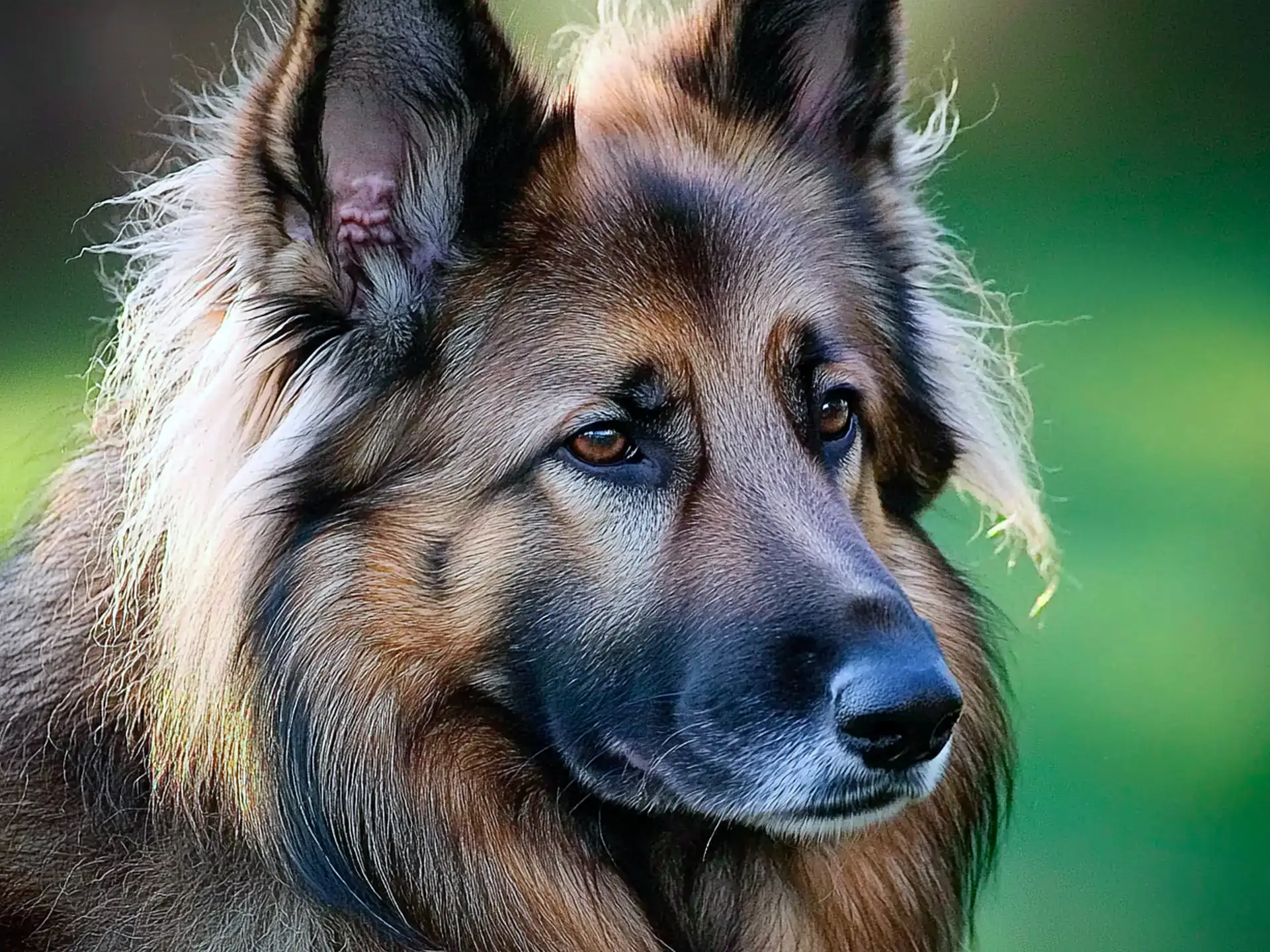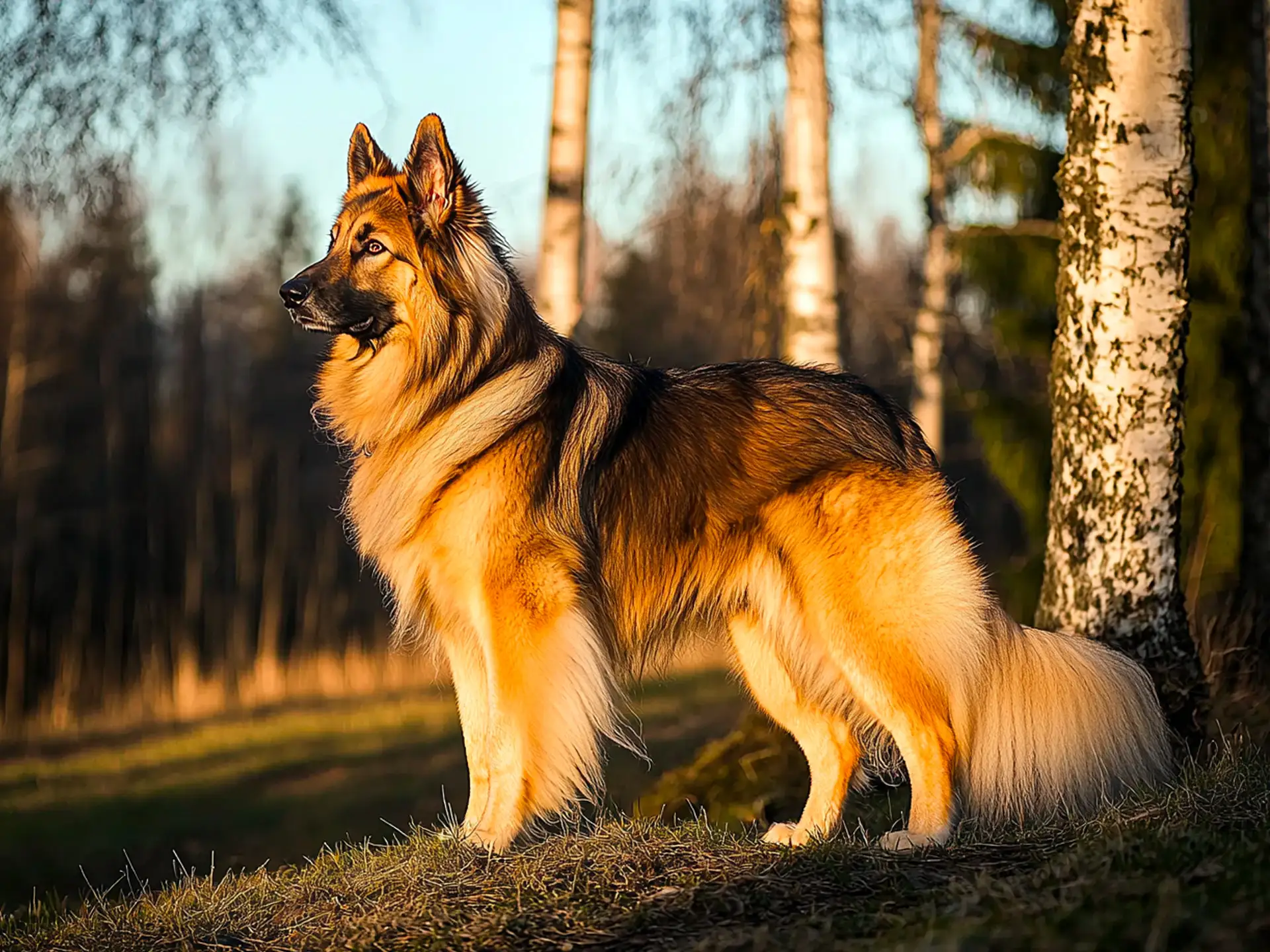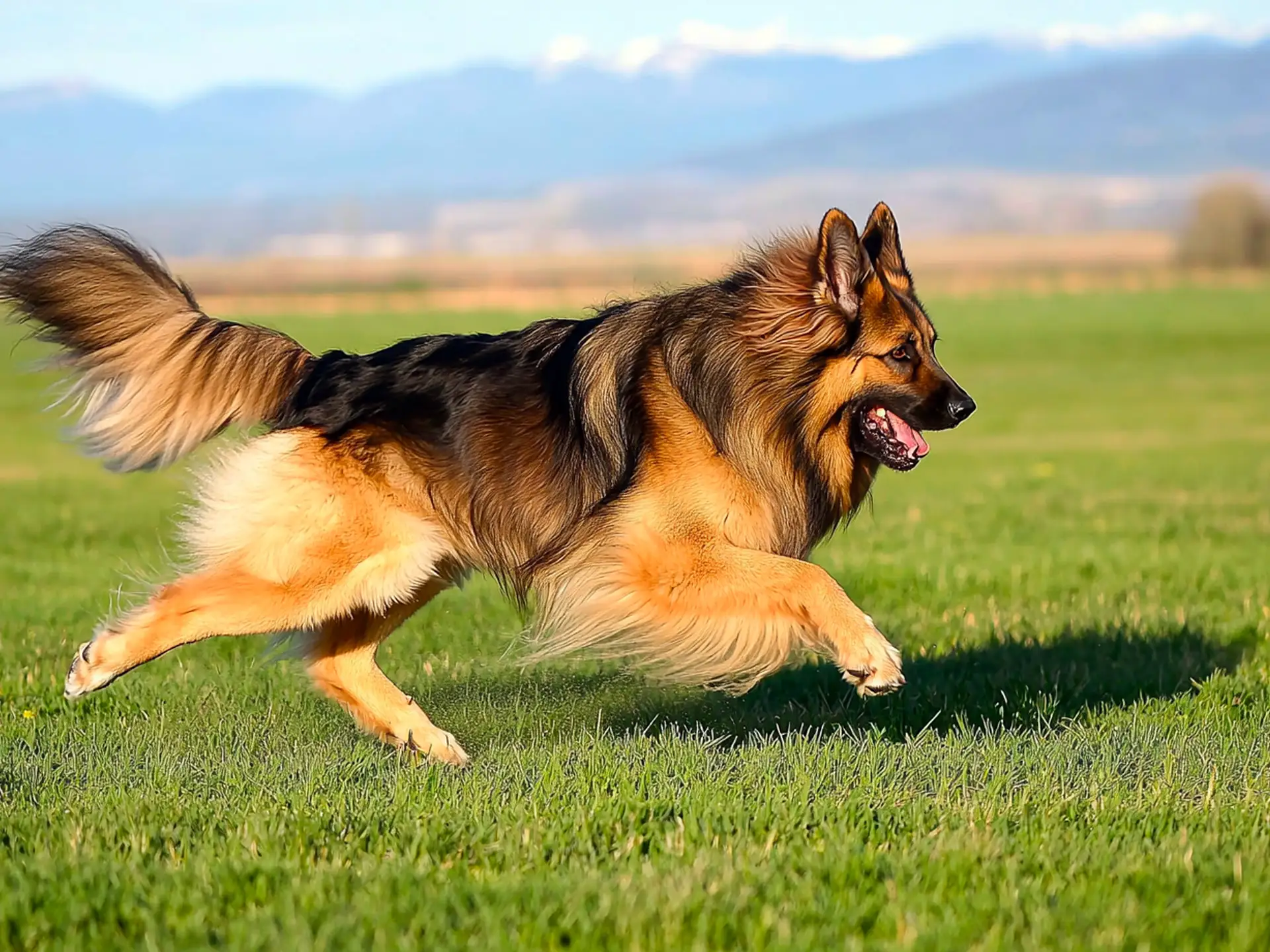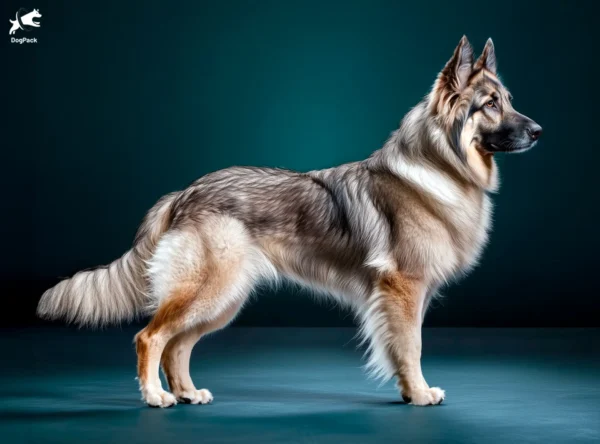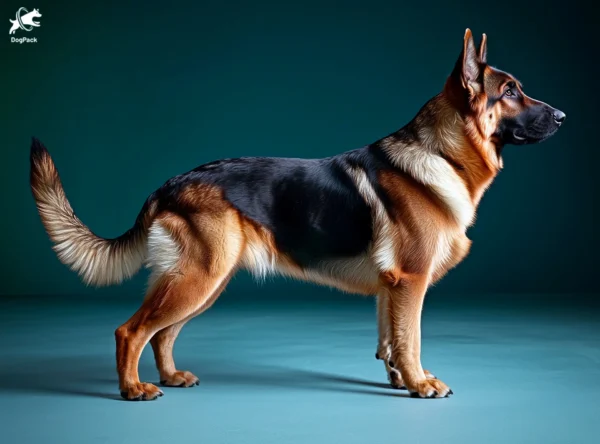King Shepherd Dog Breed Info & Overview
The King Shepherd, a majestic and loyal hybrid, combines the best traits of traditional shepherd breeds. Known for its impressive size, protective instincts, and gentle nature, this regal companion thrives in active families or as a devoted guardian of spacious homes. With a loving temperament and unwavering devotion, the King Shepherd is both a strong protector and a gentle friend, making it a truly remarkable breed.
Characteristics
Pictures
Breed History
In the late 1990s, a group of dedicated American breeders set out to create a shepherd with a grander stature and a more balanced temperament. By selectively combining German Shepherds with various large working breeds, including the Shiloh Shepherd, they laid the foundation for what would eventually be recognized as the King Shepherd.
During its development, breeders focused heavily on robust health, reliable temperament, and distinctive looks. They aimed to preserve the noble bearing of the German Shepherd while enhancing size and stability. Gradually, these efforts led to a more uniform type, attracting enthusiasts who appreciated this blend of confidence, loyalty, and unwavering protection.
Over time, recognition grew through breed clubs and dedicated organizations, which established guidelines for appearance and temperament. Although not yet officially recognized by major kennel clubs, these dogs continue to gain popularity among those seeking a guardian and family companion rolled into one. Their heritage stands as a testament to careful, purposeful breeding.
Temperament, Personality
The King Shepherd tends to be a calm, watchful companion with a strong protective streak, yet it rarely acts aggressively without cause. Around family members, these dogs show warmth and gentleness, often leaning in for a reassuring pat or cozy nap at your feet. Their combination of dignity and playfulness creates a unique, balanced personality.
Children often find these dogs to be patient and reliable friends. Known for their steady nerves, they gracefully handle rambunctious play or new, unfamiliar situations. Early socialization ensures they welcome guests with quiet confidence rather than suspicion. Over time, these loyal protectors learn to distinguish between everyday noises and true threats.
When interacting with other pets, proper introductions are key. Although generally accepting, their protective nature means they can be reserved initially. Once comfortable, they adopt a tolerant and friendly demeanor. This balanced temperament, neither timid nor overly bold, allows them to adapt smoothly to various households, fulfilling a role as both companion and guardian.
Physical Characteristics
The King Shepherd boasts an impressive silhouette marked by a strong back, deep chest, and sturdy, well-muscled limbs. Standing notably taller than many other shepherd breeds, they command attention without appearing bulky. A graceful stride and upright posture suggest both confidence and athleticism, reflecting their working heritage and purpose. Every line of their frame conveys power and endurance.
The coat typically features a plush, double-layered structure designed to protect against harsh climates. An outer layer of weather-resistant guard hairs overlays a softer, insulating undercoat. Colors range widely, including sable, black-and-tan, or even bi-color variations. This diversity in coloration offers an element of surprise, ensuring no two individuals look exactly alike.
Striking head features include alert, triangular ears that stand erect, keen eyes radiating intelligence, and a well-defined muzzle built for strength. The tail, carried low when relaxed, often curves slightly, adding to their elegant presence. Overall, their appearance conveys a dynamic balance between power and grace, rooted in functional design rather than vanity.
Health Issues
Like many large breeds, the King Shepherd can be prone to hip and elbow dysplasia, conditions affecting joint alignment and movement. Early screening and maintaining a healthy weight can help minimize discomfort. Regular check-ups ensure any emerging issues are caught promptly, allowing these dogs to remain active and content throughout their lives.
Degenerative myelopathy is another concern, affecting the spinal cord and potentially leading to mobility issues. While no guaranteed prevention exists, genetic testing and informed breeding practices reduce its incidence. Owners who stay vigilant about early signs, such as difficulty in rising or rear-limb weakness, can work closely with veterinarians on management strategies.
Thyroid imbalances and bloat are also worth monitoring. A balanced diet, routine vet visits, and attention to changes in behavior or appetite promote overall wellness. By taking proactive measures, owners can help these dogs lead vibrant, fulfilling lives. Investing in quality veterinary care ensures fewer surprises and greater peace of mind.
Grooming Needs
The King Shepherd’s thick double coat requires regular attention to maintain its natural luster and remove loose hairs. Weekly brushing helps minimize shedding, while a more thorough grooming session every few weeks prevents matting. Although seasonal shedding can be intense, consistent coat care keeps it manageable and ensures they look and feel their best.
Regular nail trims are important, as overly long nails cause discomfort and may affect gait. Attention should also be given to ear cleaning, removing any debris that might lead to infection. A gentle wipe around the eyes helps keep them clear and bright. Most individuals accept grooming routines gracefully when introduced gradually.
Bathing should be done sparingly, using a mild dog shampoo to preserve natural oils. Aim for a bath every two to three months or when they appear particularly dirty. With consistent attention, grooming sessions can become bonding time, reinforcing trust and comfort. Ultimately, proper care ensures a healthier skin and coat.
Exercise Requirements
Active and agile, the King Shepherd thrives on daily exercise that challenges both body and mind. Long walks, brisk jogs, or vigorous play sessions in a secure yard keep them content and physically fit. Without sufficient outlets, boredom may lead to unwanted behaviors, so ensuring consistent activity is essential for their well-being.
Engaging their minds is just as important as working their muscles. Interactive toys, puzzle feeders, or learning new commands help prevent mental stagnation. They excel in activities like agility, tracking, or even herding exercises that tap into their natural instincts. Mixing up the routine keeps them excited, motivated, and eager to participate.
For urban dwellers, daily outings in parks or green spaces can suffice, provided intensity matches their energy. Regular opportunities to run free in a secure area are especially valuable. Consistency matters more than marathon sessions; shorter, frequent activities maintain peak fitness and good behavior. Adjusting exercise as they mature ensures long-term vitality.
Training Tips
The King Shepherd responds best to calm, consistent training methods that tap into their intelligence and desire to please. Positive reinforcement, including treats and praise, builds trust and encourages cooperation. Harsh tactics or shouting only undermine their confidence, making progress more difficult. Begin basic obedience early, introducing commands like “sit” and “stay” in a structured, upbeat manner.
Overly repetitive drills can cause boredom, so vary exercises to keep them mentally engaged. Short, focused sessions are more effective than long, dull routines. Rewarding small successes and gradually building complexity ensures steady improvement. Introducing new skills at a measured pace allows them to retain what they’ve learned while remaining enthusiastic about mastering fresh commands.
Early socialization with various people, animals, and environments helps shape a stable adult. Invite friends over, visit dog-friendly cafes, or enroll in group training classes. By exposing them to multiple scenarios and reinforcing polite behavior, owners foster adaptability. Consistent expectations and patience form the backbone of reliable obedience, ensuring long-lasting success.
Nutrition, Diet
The King Shepherd’s robust size and muscular build demand a nutrient-dense diet tailored to large, active dogs. Quality protein sources, such as lean meats and fish, support muscle maintenance, while moderate fats provide energy without excessive weight gain. Fiber-rich carbohydrates, like sweet potatoes and brown rice, help sustain steady energy release throughout the day.
Portion size varies by age, activity level, and overall health. A highly active adult may need three to four cups of premium kibble daily, split into two meals. Puppies benefit from smaller, more frequent servings to support growth without overwhelming their digestive systems. Adjusting feedings as they mature ensures proper weight management and helps avoid joint stress.
For added enrichment, occasional raw meaty bones can promote dental health, while incorporating high-quality joint supplements supports mobility. Monitoring body condition and consulting with a veterinarian ensures that dietary adjustments are precise and beneficial. Over time, these careful choices help maintain optimal fitness, allowing them to thrive and remain energetic well into their senior years.
Adoption, Breeders
Locating a well-bred King Shepherd often involves connecting with dedicated breed clubs and reputable breeders who prioritize health and temperament over quick sales. Seek those who provide transparent genetic testing and detailed lineage information. Clubs like the American King Shepherd Club or the American King Shepherd Club International maintain directories of trustworthy sources. Verifying references and asking questions helps ensure you’re bringing home a stable, healthy companion.
Adopting through rescue organizations or shelters is another option, especially if you’re open to older individuals. Some rescues specialize in shepherd-type dogs, connecting prospective owners with suitable matches. Websites like Petfinder list available candidates. Patience may be needed when searching for rarer breeds, but finding a dog who truly fits your lifestyle is worth the wait.
Before committing, review health guarantees, contract terms, and return policies. Quality breeders gladly share veterinary records and offer guidance even after you’ve brought your dog home. Remember that good care extends beyond the initial purchase; training, grooming, and proper diet all contribute to a fulfilling bond. Don’t hesitate to seek additional advice from experienced owners.
Family Pet?
As a devoted family companion, the King Shepherd often thrives in households with children, offering both affection and protection. They tend to be patient, tolerating energetic play and forging strong bonds with younger family members. Supervision during interactions ensures everyone remains comfortable, but their naturally gentle demeanor often makes them a trustworthy presence around kids.
With early socialization, they adapt well to multi-pet households, respecting boundaries and learning to coexist harmoniously. Their protective instincts extend beyond human family members, sometimes stepping in when they sense discord. Setting consistent household rules helps prevent resource guarding and maintains a balanced environment. With proper guidance, everyone can enjoy peaceful, loving relationships.
Active families benefit most, as regular adventures and exercise sessions keep spirits high. A backyard for supervised play is ideal, though not mandatory with sufficient outings. Engaging everyone in training and care fosters teamwork, helping all family members appreciate their dog’s unique personality. In return, they offer unwavering loyalty and a steadfast, comforting presence.
Right For You?
Before welcoming a King Shepherd into your life, assess whether you can commit the time, energy, and resources this large, active breed requires. They flourish with involved owners who enjoy outdoor pursuits and can offer both mental and physical stimulation. Spacious living areas, secure yards, and an appreciation for their protective qualities all contribute to a harmonious experience.
Those unaccustomed to large dogs or hesitant about firm training guidelines may struggle. Patience is key, as teaching boundaries and manners takes time. Consider your household’s rhythm: if long work hours limit interaction or space is tight, reconsider your options. Conversely, if you embrace challenges and invest in building trust, their loyalty and charm reward your efforts.
Ultimately, they suit owners who view pets as companions, guardians, and partners in adventure. Prioritizing quality nutrition, consistent grooming, and professional veterinary care is essential. Thoughtful preparation ensures that both you and your dog can thrive together. The choice is personal: when their personality and needs align with your capabilities, the relationship formed is deeply rewarding.
Conclusion
In essence, the King Shepherd stands as a noble, robust companion for those ready to embrace the responsibilities that come with a large, active dog. By providing consistent exercise, structured training, and attentive healthcare, you ensure a happy, healthy partnership. This breed’s mix of protective instinct and gentle devotion suits confident owners who value loyalty and purpose in a four-legged friend. Although they may not fit every household, those prepared for the commitment will discover a devoted ally with plenty of love to give. Ultimately, if their presence aligns with your lifestyle, welcoming them into your home promises years of companionship, security, and heartfelt memories.
FAQs
-
How does a King Shepherd handle long car trips?
The King Shepherd typically tolerates travel well if introduced gradually. Providing a comfortable crate, frequent rest stops, and familiar toys eases anxiety. Over time, they may even begin enjoying scenic rides, making family road adventures smoother and more relaxing. Before departure, brief training sessions can help build positive associations.
-
Are King Shepherds suitable for canine sports?
A King Shepherd often excels in various canine activities, like rally obedience, dock diving, or nose work. Their intelligence and athleticism enable them to adapt to different sports. Participating regularly keeps them physically fit, mentally engaged, and fosters a stronger owner-dog relationship.
-
How does a King Shepherd behave when encountering wildlife?
A King Shepherd typically exhibits curiosity but maintains caution around wildlife. Proper training and early exposure help them remain calm and controlled. Ensuring a secure leash, offering distractions, and praising good behavior encourage them to respect boundaries while exploring natural environments.
-
Do King Shepherds bond closely with a single person?
While a King Shepherd is loyal to the entire family, they sometimes gravitate more toward one person who provides consistent care. Through shared activities, training sessions, and attentive grooming, they develop a trusting, special connection, yet remain affectionate and protective with everyone.
-
How do King Shepherds handle cold weather?
A King Shepherd generally tolerates colder climates due to their dense coat. Still, providing appropriate shelter and limiting time in extreme conditions is necessary. Extra bedding and warming indoor activities help keep them comfortable. Regular checks ensure no signs of discomfort or frostbite.
Breed Ratings
The King Shepherd impresses with quick learning, adaptability, and problem-solving skills, thriving in mentally stimulating tasks.
Although not hyperactive, the King Shepherd enjoys games, fetch, and lighthearted antics, especially when shared with beloved family members.
The King Shepherd is energetic and appreciates daily activity, thriving with exercise and mental challenges rather than couch time.
The King Shepherd’s double coat sheds year-round, increasing seasonally. Regular brushing helps manage fur storms and keep homes cleaner.
While not the highest among shepherds, the King Shepherd may chase small animals. Early training and guidance can moderate this instinct.
Grooming the King Shepherd’s thick coat takes effort. Frequent brushing simplifies coat care, but occasional baths and trimming are needed.
The King Shepherd’s keen intellect and willingness to please make training smooth. Positive, consistent methods yield excellent results.
The King Shepherd prefers company and may become anxious if left alone for long periods. Gradual independence training helps.
The King Shepherd tends to bark when alerting or bored. Proper stimulation and early socialization minimize excessive vocalizations.
While not extreme droolers, the King Shepherd can slobber slightly after drinking or exercising. A quick wipe manages any mess.
With proper introductions and socialization, the King Shepherd gets along well with other dogs, respecting boundaries and forming friendships.
Generally robust, the King Shepherd can face hip issues and other concerns. Good breeding practices, vet checks, and care support longevity.


